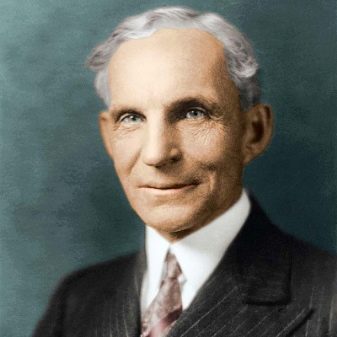Everything you need to know about career development

Career building issues are of interest to any modern person striving for a successful life. From the material in this article, you will learn what career growth is and how to influence it.
What is it and why is it needed?
Career growth - moving up the career ladder. In fact, this is a transition from a lower level to a higher one. Moreover, as a rule, it is associated with the expansion of the responsibility and authority of a specific employee of the enterprise. This is the natural growth of a developing professional in a particular activity.
The higher the promotion of a specialist, the more skills, capabilities and competencies he has. Career advancement requires a lot of effort. It is necessary for stability in life. The higher a person's career, the higher their status in society.
This affects the standard of living, the development of a specific personality, the salary of an individual.

Comparison with professional growth
Career and professional growth are not the same thing. They have fundamental differences. Professional growth consists in mastering the profession at the highest level. This process can go on indefinitely. A specialist of the highest level can solve any issue related to the specifics of his work. Such employees are in demand in the labor market. However, not all of them can count on career growth when applying for a job. Career is about empowerment. Such a specialist has leadership and organizational qualities. The difference is more than obvious.He does not have to know the nuances of work to the smallest detail, since he will face completely different tasks with moving up the career ladder. He will have to develop brand strategies, solve issues of its development, planning. Such a specialist creates a team of professionals, sets before them the management goals that they must achieve.
And it is they who will already work with narrowly focused masters, requiring them to do a certain job. The organizer himself should not go into details. but he must be a leader who is oriented in his profession. He can go through all stages of career growth, from the bottom to the position of director. It is easier to explain this using the example of a career in science in the form of a diagram: laboratory assistant - researcher - head of department. Career growth has clear advantages over professional growth. In the second, a person delves into the essence of the profession better, but in the first he reaches great heights in work and society.
The benefits of career advancement include:
- opening up great prospects;
- self-improvement and self-development;
- study and implementation of new technologies;
- expanding ties, raising status;
- adaptation to different environments;
- increase in the level of wages.


Influencing factors
People moving up the career ladder do not stay for a long time in one position. At the same time, not all of them have a red diploma and have extensive experience. To become a successful person, you need to consider a number of nuances. For example, a person should be purposeful, responsible, hardworking, disciplined. The key criterion is the position of a specialist. You cannot curry favor with the authorities, grovel and in every possible way demonstrate a willingness to enslave for the sake of an imaginary promotion. Such people do not move up the career ladder. You need to present yourself as if the person is running his own business and is hired as a highly qualified respected specialist.
The person must be motivated to work. At the same time, he must be sociable, with an active life position and intelligible self-esteem. A careerist knows how to admit his own mistakes and does not dwell on failures. Upon arrival at work, he creates his own team of like-minded people, leads them, checking the results of the work. A successful person will not carry out the instructions of colleagues, he will give them himself. He knows how to present himself in a team, can explain how, what and in what time frame, creates the image of a busy and in-demand employee. He is not afraid to take on complex management tasks, he solves them himself, proving his own competence. He sees himself as the leader's right hand.
He does everything to ensure that the management sees that there are no impossible goals for this employee. He is not intimidated by the quick deadlines for solving the assigned tasks. He sees the possibilities of solving any tasks, accepts ideas and takes into account the opinion of the management. Such a person supports the initiative of his superiors and is constantly engaged in self-development. Such a person does not argue with the management and does not point out to the management mistakes related to unprofessional assignments. Instead, he makes rationalization proposals.
A careerist adequately perceives criticism in his own address and does his job with high quality. He does not put himself in the position of a "whipping" man, is able to briefly and clearly explain the slowdown in the implementation of the task or to argue for his own absence from the plant or company during working hours.

Varieties
Career growth has several types. Each of them has its own nuances.
- Vertical. Such an increase in the career ladder implies the transfer of a specialist to higher positions in the conditions of one company. However, managers are often not interested in this. It is easier for them to increase the volume of work and keep the specialist in the same position.All he has is experience in his specialty and authority among employees.
- Horizontal. This type of career growth implies an increase in wages without a promotion. In other words, a specialist moves to a new organization with a higher salary, but does not have a top position. There is no need to talk about expanding his powers and prospects in this case. Such a careerist does not reach great heights.
- Diagonal. With such a career growth, a person moves up, goes to different enterprises. Usually, with each transfer, he gets a job at a higher position. This type is more dynamic, although it also has its drawbacks, because frequent job changes can cast doubt on a person's reputation. If career growth outstrips professional growth, the limits of competence are limited.
- In one company. Not every ambitious person can build a career in one company. The employer knows not only the advantages, but also the disadvantages of a particular employee. In most cases, this progress is very slow. Often, at best, a specialist manages to become only a top manager.
- In one area. Those who are very determined and have many of the necessary qualities succeed in building a career in one area. In this case, growth can be both diagonal and vertical.
For promotion, a specialist has to possess many qualities, otherwise he risks staying in one position.


Stages
In the course of developing his own professional activity, a person goes through several stages of development. Each of them has its own nuances. Preparatory education usually takes place between the ages of 18-22. At this time, a person is busy with obtaining a higher or secondary education. Upon completion of his studies, he gets a job in the chosen company. At this time, the foundations for future professional growth are being laid.
The adaptation stage in humans takes place at the age of 22-30. During this time period, the mastering of the profession, the development of skills and abilities, the formation of qualifications takes place. During this time, a specialist self-asserts in a particular case. The success of the process is evidenced by the emergence of a need for their own independence and career growth. The stabilization stage consists in dividing employees into 2 groups: those seeking promotion and subordinates. As a rule, this stage falls on a time interval of 30-40 years. This is the time of self-determination and setting life goals. And if some are not ready to go forward, the latter do not agree to put up with the lack of prospects and change jobs without fear.
The consolidating stage is the last, it falls on the time interval from 40 to 50 years. At this time, a person realizes his limits. Those who have already reached certain heights reap the fruits of their labor. Those who have put up with the work of a subordinate all the time before, sometimes decide to change their lives. More often than not, they build horizontal careers.

We draw up a plan
To draw up a plan, you need to formulate a career goal. This will allow you to understand what you need to strive for. Then you need to decide on the time during which you need to achieve the final result. After that, they are determined with career paths. When difficulties arise with the formulation of tasks, they are revised, determining whether they are true.
If a person does not know what exactly he wants to get, complications may arise. The methodology for achieving success in building a career can be different. For example, if several people are applying for a vacant position, you need to have advantages over others. The presence of such an argument can be:
- 2nd higher education or academic degree;
- document on the completed training;
- high indicators of labor productivity;
- knowledge of one (several) foreign languages;
- ideas for greater efficiency of the enterprise.
Career development scenarios can be different. However, success requires both experience and professional skills. If a person is interested in his own career, he has to study a lot and squeeze time for self-development. At the same time, it happens that career advancement is associated with professional testing. In this case, the position is given to the most successful employee.
When it comes to a fast career, the most ambitious people can count on it. They are able to promote creative ideas, bring a fresh look into their implementation, move the company forward in its segment. As a rule, such careerists are brave, risky and decisive, they are confident in their abilities. In addition, career scenarios can be: a lucky break, a competition, reorganization, and a personal approach. It is difficult to predict this or that development option. You can be at the right time in the right place, which will determine the fate of a person. At competitions, you have to use all your knowledge and skills.
During the reorganization, production expands, new branches are opened. This is the best time to move up the career ladder. But if you constantly and a lot to work for a penny, you can not count on a high position.
As for the personal approach, it is typical for cases when the manager is interested in promoting a specific employee.

Examples of famous people
There are many examples of career advancement. We offer some of them.
- Marilyn Monroe (Norma Jeane Mortenson) started to build her career at the age of 19 from working in a modeling agency. Before that, she worked at an aircraft factory, later became an actress and an idol of millions of people. The first roles did not bring success, but Marilyn even took on minor roles. Thanks to perseverance, she gained worldwide fame.
- Milton Hershey (founder of Hershey Chocolate) began his career as a typesetter in a printing house. Thanks to his perseverance and striving for success, he studied the technology of making chocolate and sweets, failed and looked for ways to achieve his goals. He was not afraid of experimenting with production technologies.
- Henry Ford (founder of the automotive brand) faced many difficulties on the way to success. I was looking for investors in my projects that were unsuccessful. However, due to his perseverance, he achieved success, world recognition and popularity.


Recommendations
If you want and strive for a successful career, many can achieve high results. To achieve an increase in career growth, it is necessary to draw up an approximate promotion scheme. It should be borne in mind that careerism has its own rules. First you need:
- set yourself small tasks that can be completed in a short time (month, week, quarter);
- be able to manage working time, fulfill assigned tasks ahead of schedule, distribute their own capabilities;
- to be punctual, unobtrusive, but with a slight dose of self-promotion, to gain favor in the team;
- learn to perceive failures as impulses for development, stop justifying your own mistakes;
- put yourself in the right position in order to achieve success, not to complete a lot of tasks for a pittance.
In addition, you need to take care of your own appearance. It has to be flawless, from the fit of the suit to the hair and the perfume.... A dress code is required, a stylish look. Sloppiness is excluded, it is worth reconsidering your attitude to work. If it is not as important as other hobbies, you can not count on career growth. To be successful, you need to be an organized leader. It's a pleasure to deal with such a person. You can rely on him, he is highly regarded by the management. A person who knows how to be responsible for his decisions, punctual, developmental, sociable and knowing his own worth is needed for every enterprise.
You need to show a desire for career growth, otherwise you can occupy the same position for years. If possible, you need to take the initiative into your own hands, manage this or that decision, give instructions to employees. This demonstrates leadership qualities, the ability to manage employees in front of management. Speaking qualities are no less important. It is necessary to express thoughts concisely and clearly, to be sociable, but keeping a certain distance with employees. Any manifestation of familiarity is excluded. It is important to engage in the development of your speech, expand your vocabulary, speak on business, politely and competently.
At the same time, you need to be aware of the latest news in order to be able to bypass competitors in your segment. You need to keep up with the trends in the professional field and generate ideas for brand promotion.
In addition, you need to know your job and do it without reminders.






